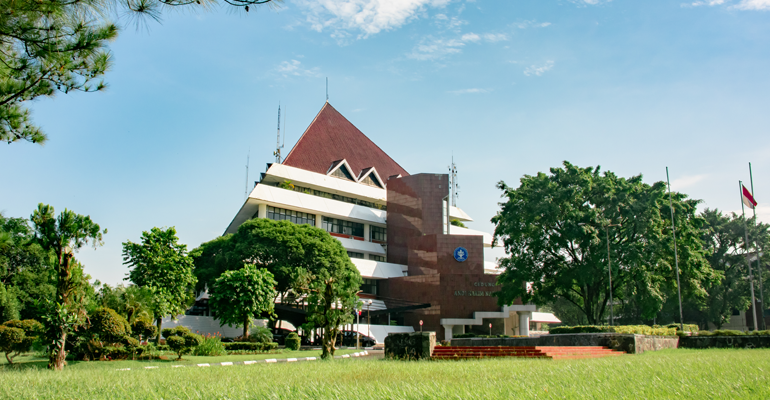Supporting Permendikbudristek, Here are Eight Final Project Mechanisms at IPB University

The Indonesian Minister of Education, Culture, Research and Technology (Mendikbudristek), Nadiem Makarim recently made a statement stating that students at the S1 or D4 level are no longer required to do a thesis. This is stated in the Minister of Education, Culture, Research and Technology Regulation No 53 of 2023. The statement was delivered in a panel discussion ‘Merdeka Belajar Episode 26: Transformation of National Standards and Higher Education Accreditation’, (29/8).
Responding to this, the Rector of IPB University, Prof Arif Satria, said that the pattern had been applied by IPB University since 2019. “At IPB University, the policy of not requiring a thesis has been implemented since 2019. However, final assignments still exist, such as business plans and field or research project reports,” said Rector.
Rector emphasised that IPB University supports the transformation of the National Standard of Higher Education (SN Dikti). “We support the policy because it is in accordance with what IPB University has been doing. This policy gives confidence to universities to organise their own academic activities,” he said.
At IPB University, the policy has been contained in IPB Rector Regulation Number 27/IT3/PP/2019 concerning Guidelines for Writing Scientific Work for Student Final Assignments. In the regulation, it is explained that the sources of final project activities vary. In the 2020 IPB Curriculum (K2020) which is integrated with Merdeka Belajar Kampus Merdeka (MBKM), there are 8 learning models including the final project mechanism.
The eight final project mechanisms are:
- Industrial internship + final project in semester 8
- Industrial internship 2 semesters + integrated final project in semesters 7 and 8
- Exchange programmes abroad (programmed) in semester 7
- 2 semesters of study abroad (programmed), including the final project of the study programme in semester 7 and the end of semester 8
- Enrichment courses (EC), create new venture + final project in semester 8
- Enrichment courses (EC) 2 semesters, create new venture integrated final project in semester 7-8
- Enrichment courses (EC) in the form of community development (comdev)/outreach education/village school + final project in semester 7-8
- Enrichment courses (EC) in the form of community development (comdev)/ outreach education / village school + final project in semester 7-8
Study programmes at IPB University that have implemented non-compulsory thesis include Business Study Programme (School of Business), Agricultural Industrial Engineering Study Programme and Food Technology Study Programme (Faculty of Agricultural Technology), Nutrition Science Study Programme (Faculty of Human Ecology) and Statistics and Data Science Study Programme (Faculty of Mathematics and Natural Sciences).
For example, in the Agricultural Industrial Engineering Study Programme. Prof Ono Suparno, Chairman of the Department of Agricultural Industrial Technology (TIN) said that the programme implemented the Agro-Industrial Main Design Project (Produsa), in which students in groups of 3-5 people complete a case study in collaboration with the industry. “This programme has been initiated since 2018 by involving 20 students from batch 54 out of a total of 120 students (16 per cent). In the next two batches (2019 and 2020), the implementation has been 100 per cent students,” he said.
Meanwhile, Prof Noer Azam Achsani, Dean of the School of Business of IPB University said, since graduating the first batch, the School of Business of IPB University did not require a thesis. However, students still have to make a final project.
“The final project also varies. Students can integrate capstone projects such as projects to develop start-ups, projects to create companies, compile problem solving for real problems in industry or society from the results of internships in companies. Students can also conduct student exchange by making a comparative study between certain conditions abroad and in the country, which is then extracted and written into the final project,” he explained.
In line with the Rector of IPB University, Prof Azam emphasised the importance of the final project for students. The preparation of the final project is useful for honing writing skills, but it does not have to be a thesis. In fact, he said, currently many students make business model development that is problem solving, as well as making literature reviews of business theories and practices. (dh/Rz) (IAAS/RUM)



